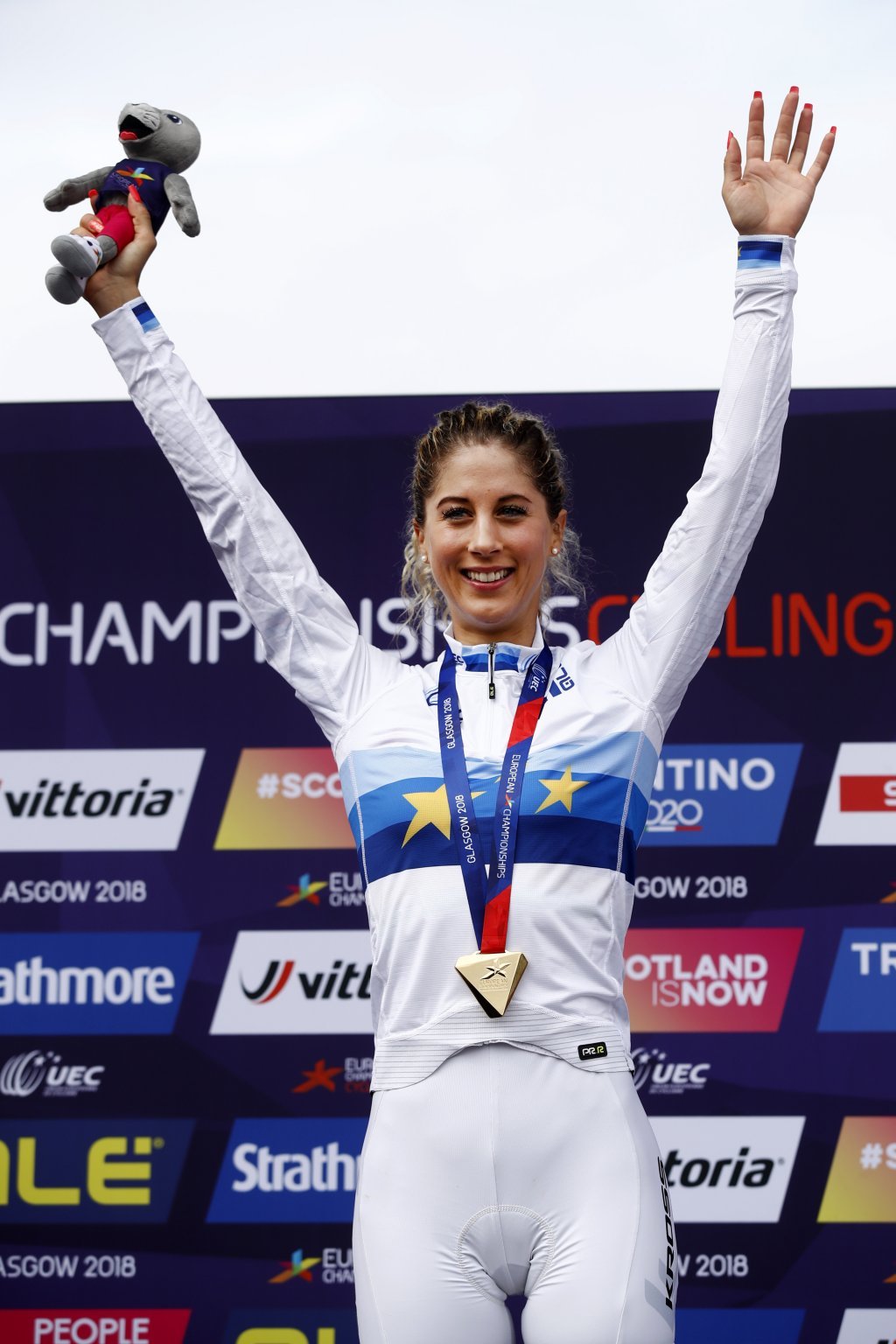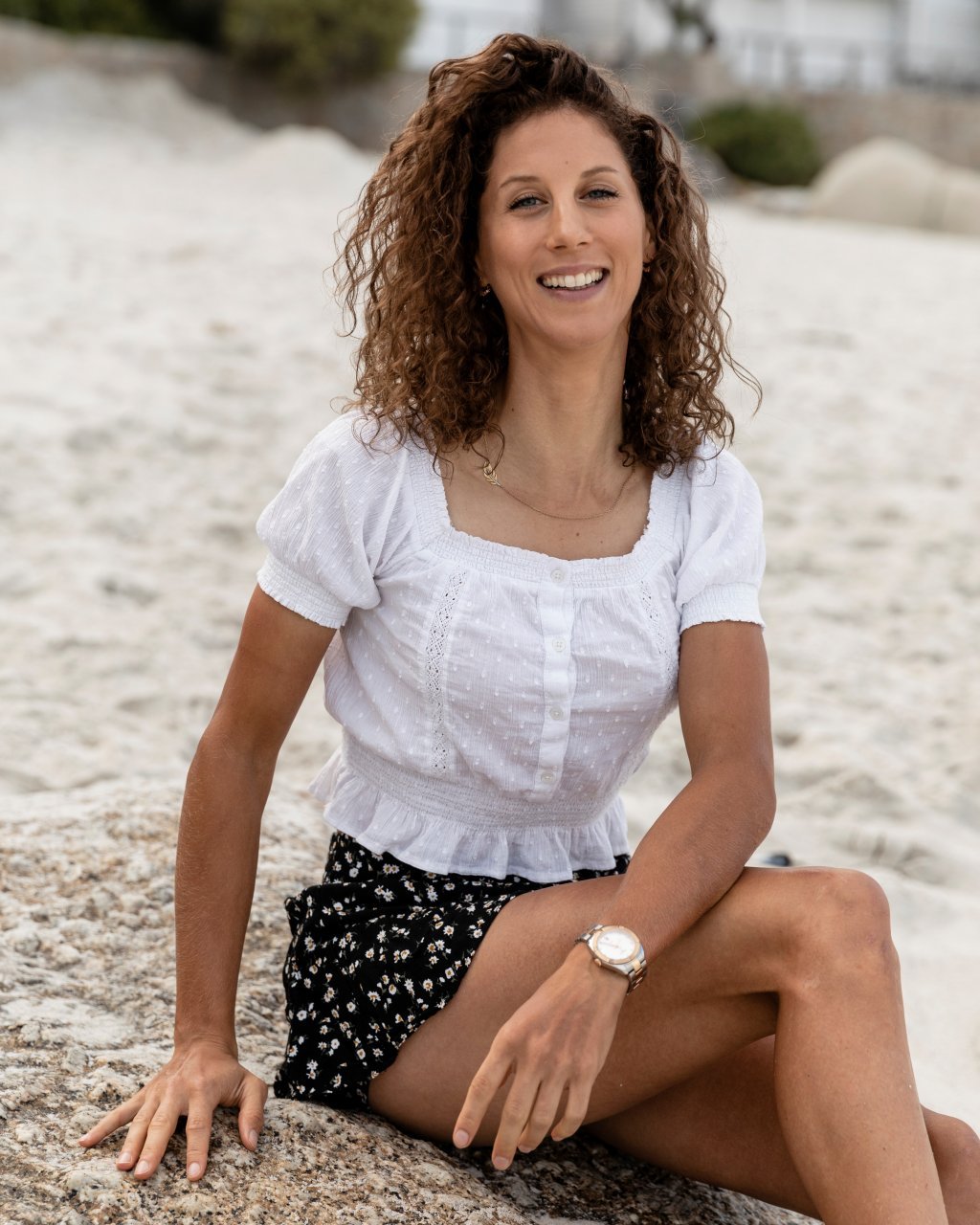Jolanda Neff: European Championships Are Comparable To World Cup
Mountain biking royalty concentrated in Europe
Jolanda Neff has a knack for winning. The 29-year-old is a contender for the title in almost every mountain bike cross-country race that she enters, leading to an impressive resume: reigning Olympic champion, youngest overall World Cup victor, three-time overall World Cup winner, four-time world champion, four-time European champion and ten-time Swiss champion.
And it is not just on a mountain bike that she excels. At Rio 2016, Neff qualified for the cycling road race, alongside the mountain bike competition. However, in more recent times, her focus has solely been on off-road racing.
© Julian Finney/ Statt/ Getty Images
EXCITEMENT AND FOCUS FOR MUNICH BUILDING
Cross-country mountain-biking was already present at the inaugural European Championships in Glasgow and Berlin back in 2018. It is an event that left a positive lasting impression on Neff: "I've competed at the European Championships in Glasgow and it was a great experience for me. It was well organised, and they produced a really cool route. I remember it as a really great race – one that I really enjoyed," expressed the Swiss rider in her exclusive interview with Munich 2022.
The second edition of the European Championships takes place on the 50th anniversary of Munich’s hosting of the Olympic Games. There will be nine different sports on the agenda, with mountain-biking a discipline within the wider cycling programme. "I have to say, I'm already looking forward to Munich. I'm sure it will be greatly organised,” enthused Neff.
The European Championships creates a unique challenge for the mountain bikers, presenting new routes and locations that they would not typically encounter on the World Cup. Alongside adding more silverware to her collection, it is this challenge of taking on new routes that attracts Neff to the continental competition. “It would mean a lot to me to win a fifth European title. The European Championships has always had a special value for me.”
THE PERFECT CROSS-COUNTRY ROUTE
The mountain bike cross-country competition at the European Championships is contested as an individual event. Beginning with a mass start, competitors face multiple loops of a hilly off-road circuit, with a typical race taking around 90 minutes.
Competitors only learn of the route upon arrival at the venue, making the inspection of the course critically important. Neff has her own idea of how a perfect layout should look. “I would prefer a route like Glasgow,” she explains. “It was really cool – a fun route with a lot of jumps in it.” Breaking up the rolling hills that define mountain bike routes, jumps provide an element of enjoyment for the riders, offering a quick thrill, even in the heat of competition.
Typically, tracks rely on natural terrain. If manmade elements are integrated into the layout, it should be done in a way that does not upset the natural flow of the course. “That was the case in Tokyo,” says Neff referring to the 2020 Olympics course. “The track was completely built, but it turned out to feel natural.”
But more than just adding a ‘wow’ factor with jumps, there also need to be challenging elements to the course: "I always love it, as soon as it's technically demanding, also in the ascents.” The ten-time Swiss champion is one of the most tech-savvy riders in the world. For Neff, it is important, "that there are roots and stones on the track, meaning you can’t just cruise uphill as if you are on a motorway.”
But very few could even do that at the same speed as the world elite.
© Tim de Waele/ Staff/ Getty Images
"Technique is a huge factor in our sport and that has strengthened in recent years. Now it is specifically trained, that wasn't the case in the past.” Having the correct technique provides an immense advantage. "There is something to gain over every metre, if you have the right technique.” But it is not only time that correct technique can impact. "You can also simply save energy or be safer on the road.” Among other things, this helps prevent falls.
Despite taking all necessary precautions, Neff fell badly at the end of December 2019. This put celebrating Christmas and training on hold as she instead spent several weeks in hospital, mending from a ruptured spleen, collapsed lung and broken ribs that required emergency surgery.
Upon returning to the bike and the scene of her accident, Neff showed no signs of hesitation when it came to the steepest descents. "I really wasn't scared, and it just felt good. And then step-by-step, I slowly worked my way back up to the old speed.”
Nevertheless, without the pandemic-related postponement of the Summer Olympics, the competition in Tokyo probably would have come too early. Not just to get on the podium, but possibly even just to make the start.
In 2021, Switzerland managed a so-called "sweep" of the Olympic podium, meaning gold, silver and bronze went to a single nation. The competition in her own country is evidently immense.
© Michael Steele/ Staff/ Getty Images
STRONG SWISS NATIONAL TEAM
Mountain biking success in Switzerland started ten years ago when their men’s team started to medal regularly at European, World and Olympic level. That gave the sport significant promotion in the country, leading to extensive funding.
"This has given mountain bike sport in Switzerland a major boost.” More attention. More media presence. And the introduction of a junior series that Neff grew up with. It also helped that her family has a background in cycling. Her father Markus was vice-world champion in 1997 and is involved in the implementation of junior races.
Due to the considerable success of Neff, more girls and women than ever before are trying out mountain-biking. This is now reflected on the national team. “When I started there were a few older people, I'd say some were aged over 40, and they were still included in the national team. Now, I am not even 30 and I am the oldest.
"At the same time, while it is great that there is so much development, I hope I am not going to get kicked out now that I am the oldest,” laughed Neff. It seems unlikely this will be happening any time soon.
EUROPE = WORLD CLASS
It's not just Switzerland that produces multiple top-tier riders. “In Europe, the competitive scene is extremely strong,” something Neff has a simple explanation for: "there is a top-level race every weekend.” The majority of competition in Europe is located centrally around Spain, France, Germany, Italy and Switzerland, making each race easily accessible by train or car.
“Here in Europe, races are rarely more than a three-hour drive away and there are typically competitions every weekend.” This is not the case in North America, Australia or Africa, where there are less races, helping explain why the highest concentration of top level riders come from Europe.
Europe’s general cycling culture also plays a major factor, with children having easy access to cycling clubs where strong role models are present. It is no wonder then, that at the Olympic Games in Tokyo, 13 of the 15 best riders were European, the other two coming from USA.
What this means is, that “you actually have almost all [favourites] with you at the European Championships.” Neff can only come up with one name as an exception to this rule, Australian Rebecca McConnell. Therefore, “the European Championships are a high priority event and totally comparable to a World Cup.”
The main difference between the two, in Neff’s opinion has in the past been the lack of media coverage afforded to the European Championships, something that is now rectified with the inclusion in the wider European Championships. "We've had European Championships in the past that you could not follow at all.” That is why, in Neff’s eyes, the European Championships are the right approach. “Such a big event helps bring all the included sports forward. That was also the case in Glasgow, which was broadcast in 70 countries, and that is exactly what the sport needs.”
Courtesy of Jolanda Neff
TOGETHER AT MUNICH 2022
Neff is not only happy about the effects of the media presence on her sport, but also about the possibility of following the other eight sports, which make up the event, live. "There are a lot of other sports that interest me and that I would love to watch,” explains Neff, rattling off a list of Swiss athletes she will be cheering for. “Mujinga Kambundji, Ajla Del Ponte, Salomé Kora [athletics], Petra Klingler [sport climbing], Anouk Vergé-Depré [beach volleyball],” and the list goes on.
It is clear, that Neff won't get bored. "Whenever that opportunity is there, and you are with the others and being able to have contact, I really enjoy it. And I think it's really cool to be able to exchange ideas.”
That's why Munich 2022 is the perfect setting, because nine simultaneous European Championships will result in more tangents than you can imagine.




